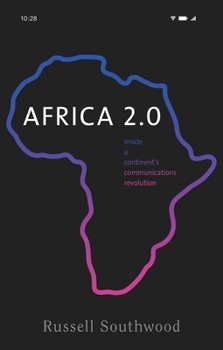Africa 2.0: Inside a Continent's Communications Revolution
Select Format
Select Condition 
Book Overview
Africa 2.0 provides an important history of how two technologies - mobile calling and internet - were made available to millions of sub-Saharan Africans, and the impact they have had on their lives. The book deals with the political challenges of liberalisation and privatisation that needed to be in place in order for these technologies to be built. It analyses how the mobile phone fundamentally changed communications in sub-Saharan Africa and the ways Africans have made these technologies part of their lives, opening up a very different future.
The book offers a critical examination of the impact these technologies have had on development practices, and the key role development actors played in accelerating regulatory reform, fibre roll-out and mobile money. Southwood shows how corruption in the industry is a prism through which patronage relationships in government can be understood, and argues that the arrival of a start-up ecosystem in the region has the potential to change this. A vital overview of the changes of the last three decades, Africa 2.0 examines the transformative effects of mobile and internet technologies, and the very different future they have opened out for sub-Saharan Africa.Format:Paperback
Language:English
ISBN:152615482X
ISBN13:9781526154828
Release Date:July 2022
Publisher:Manchester University Press
Length:304 Pages
Weight:0.80 lbs.
Dimensions:0.7" x 5.5" x 8.5"
Customer Reviews
0 rating





